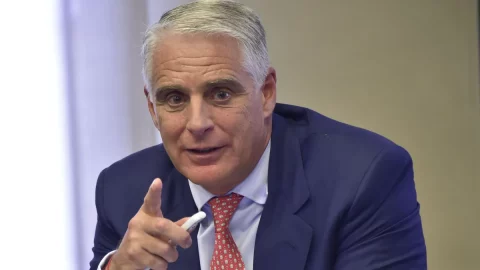American protectionism is also affecting Europe. From today the United States they snapped duties on steel (at 25%) and aluminum (at 10%) imported from the EU. The same measure, wanted by President Donald Trump to revive US production, was adopted last March XNUMX against Canada e Mexico.
"National security reasons", writes The Donald, who thus continues to keep the electoral promises launched under the cry of "America First", in defiance of diplomatic and economic relations of primary importance and consolidated over decades of alliances.
Initially the US had decided to postpone the adoption of new tariffs against the EU compared to what was established for Canada and Mexico, moving the deadline to June 1st. The goal was to take advantage of these two months to find an agreement that would set precise quotas and limits on steel and aluminum imports, in the wake of the agreements already reached with South Korea, Australia, Argentina and Brazil.
But the negotiation never started due to the unavailability of Brussels, which defined the American initiative as "unjustifiable and dangerous", confirming that countermeasures will not be long in coming. The European Commission already has it in the drawer a plan to hit above all symbolic products of "Made in the USA", like Levi's jeans, Harley-Davidson motorcycles or Kentucky bourbon. The first European counter-duties should start from 20nd June and they could cost the United States 7,5 billion dollars the year. In the meantime, the first move will be to bring both the US and China before the WTO, the former for the duties and the latter for the violation of the rules on intellectual property rights. The news was announced by EU Trade Commissioner Cecilia Malmstroem. “This shows that we don't choose to side with anyone, we just side with the rules of the multilateral trading system,” she warned.
Similar reprisals against Washington will also be implemented by Canadians and Mexicans. In particular, Mexico has already announced new taxes to hit US imports of products such as steel, pork, grapes and blueberries.
"This is protectionism pure and simple, unacceptable" said the president of the EU executive, Jean-Claude Juncker. "We will respond with all the means at our disposal", echoed the president of the European Parliament, Antonio Tajani.
even the International Monetary Fund he criticized Trump's decision: “Everyone loses in a protracted trade war – reads a note – It is not good that trade tensions are escalating precisely at a time when the global recovery is supported by trade. We encourage countries to work constructively together to reduce barriers and resolve trade disagreements without recourse to exceptional measures."
From the USA, the secretary of Commerce Wilbur Ross he tried to minimize the incident, stating that the tariffs implemented today are very limited in scope and that any European countermeasures will not have a great impact on the American economy. However, Ross also issued a warning: "We will continue to fight against trade abuses."
The most serious danger is that these are only the first steps in a much larger trade war. In fact, Trump has already opened an investigation into the import of cars into the USA, raising the specter of 20% duties which are above all worrying the major German car manufacturers.
Not only that: The Donald also threatens a squeeze on a long list of hi-tech goods from China worth $50 billion, starting in mid-June.
The risk of an escalation is more concrete than ever and is shaking up the work of the G7 finance ministers ongoing in Canada. The theme of duties will obviously also be at the center of the G7 of heads of state and government also scheduled in Canada next week.
Read the comment of the economist Stefano da Empoli: Tariffs are bad for the economy (and for innovation): here's why





